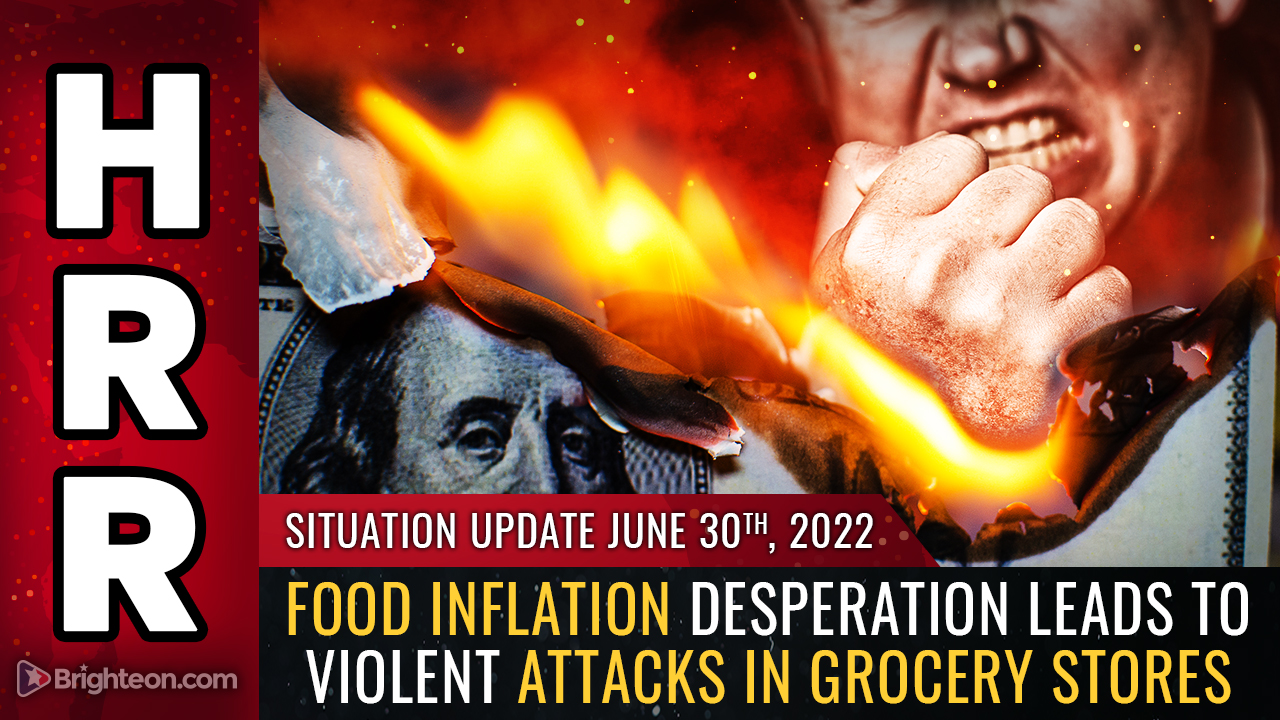70,000 truck owner-operators in California may be forced to stop driving in one week due to new state law
07/03/2022 / By Mary Villareal

A Supreme Court decision may force over 70,000 truck owner-operators in California to stop driving, creating another choke point in the already stressed West Coast logistics networks.
The AB5 law restricts the use of independent contractors and will soon be enforced against the trucking industry after the court declined to hear their appeal.
The California Trucking Association said in a statement that gasoline has been poured on the fire that is the ongoing supply chain crisis, and the decision by the Supreme Court could deny a judicial review of a lower court ruling.
In an end-of-term orders list released in June, the Supreme Court denied the review of the 9th Circuit’s reversal of the injunction against enforcement of the AB5, which is against the state’s trucking industry. This injunction, which has been in place for over two years, will be lifted quickly.
The group said that in addition to the direct impact on the owner-operators who only have seven days to cease operations of their long-standing businesses, the impact of taking tens to thousands of truck drivers off the road can have devastating repercussions on the already fragile supply chain – which increases costs and worsens inflation.
The association also asked the Supreme Court for a review of a case that challenged California’s Assembly Bill 5, which is a law that sets out three tests to determine whether or not a worker is an employee entitled to job benefits or an independent contractor who isn’t. The trucking industry relies on contractors and has fought for an exemption from state regulations because of federal laws.
With few exceptions, the relationship between independent truckers and their carriers, brokers and shippers will be governed by the tests, and the association has expressed its disappointment with the court’s refusal to recognize the “irrevocable damage” that could happen by eliminating independent truckers on interstate commerce and communities.
The transportation industry is now taking action to see how business models will fit the new paradigm, according to Harbor Trucking Association Chief Executive Officer Matt Schrap.
He said this move will have a profound effect on driver supply, adding that many entrepreneurs use contract models as the pathway for trucking opportunities. “We’ve got many companies who have been planning for this, but we’ll see how the chips fall.” (Related: Coronavirus hits grocery workers, truck drivers; supply chain now in danger.)
AB5 is killing small trucking business in California
Assembly Bill 5, which was passed in 2019, put forward a strict “ABC Test” that determines whether a worker is an employee or an independent contractor. The California Trucking Association challenged it and obtained a preliminary injunction, however, the decision was overturned on appeal, remaining in place pending the CTA’s appeal to the Supreme Court. (Related: Shortage of truck drivers in the US forces companies to look overseas.)
The AB5 took a 2018 state Supreme Court decision that said certain workers should be presumed employees instead of independent contractors when evaluating wages and hour classifications in class-action cases.
To be considered an independent contractor, there are conditions to be met. First is that the worker is free from the control and direction of the hiring entity in connection with the performance of the work, both under the contract for the performance of the work and in fact; second, it posits that the worker performs work that is outside the usual course of the hiring entity’s business; and third is that the worker is customarily engaged in an independently established trade, occupation or business that is of the same nature as the work performed.
Most legal analysis of the ruling agrees that the test sets an impossible standard for most motor carriers using the independent contractor-owner operations.
The California Trucking Association’s lawsuit also contended that the AB5 legislation forbids states from enacting laws relating to prices, routes and motor carrier services.
The court agreed and granted an injunction prohibiting enforcement of AB5 with respect to the trucking industry, but the decision was reversed on appeal by a panel of the Court of Appeals for the Ninth Circuit.
Trucking companies are recommended to “look at various options” to restructure their delivery models in California. For instance, they can use the same drivers as employees, although this is not likely because most of the drivers prefer to be independent contractors. They own their own trucks and have their own businesses, to begin with.
Visit Chaos.news for more news related to the ongoing supply chain crisis.
Watch this video that talks about how AB5 is killing small trucking in California.
More related stories:
Trucking industry is short 80,000 truck drivers amid supply chain crisis.
Shortage of truck drivers in the US forces companies to look overseas.
Sources include:
Submit a correction >>
Tagged Under:
business, businesses, California, Collapse, commerce, employee vs contractor, logistics, logistics networks, supply chain, supply chain crisis, Supreme Court, transportation, truckers, trucking, trucking industry, trucks, West Coast
This article may contain statements that reflect the opinion of the author
RECENT NEWS & ARTICLES
COPYRIGHT © 2017 CHAOS NEWS




















